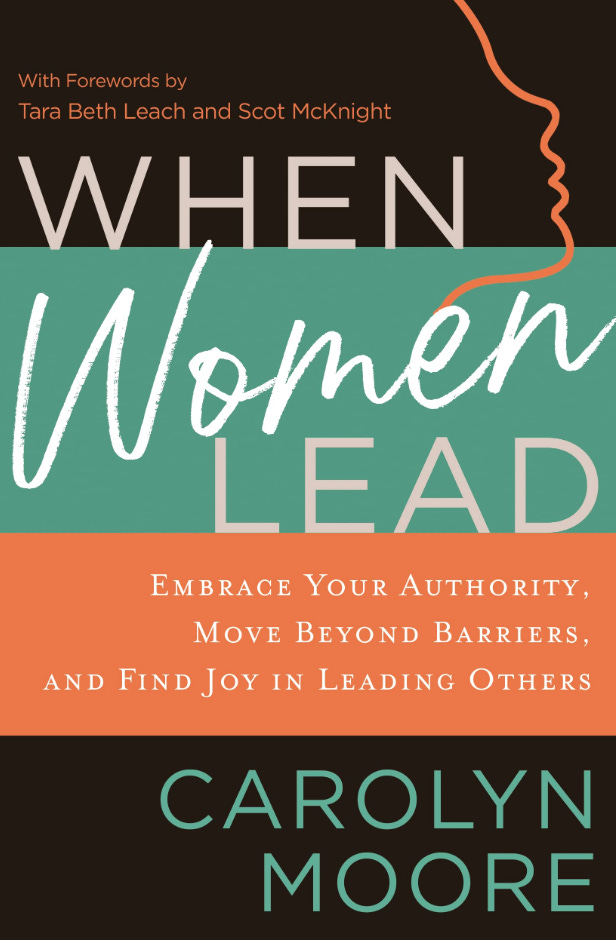Women Leaders: Coaching and Mentoring
I was talking with Carolyn Moore, author of When Women Lead, for her podcast the other day. We were talking about my translation of the New Testament. She had some questions about some of my translation choices, and one that passed me by was when she asked why I chose to use the word “mentor” where most people will translate with either overseer or bishop.
Two days later I read the 9th chapter in her book, called “Partnership.” The chapter is a very useful sketch and reminder of the importance of coaching, mentoring, and training. As I read this chapter I simultaneously wondered if how she is using mentor connects with translating the Greek word episkopos as mentor. In some ways, Yes.
The theme of the chapter is this:
Men and women are created for partnership.
Some in my circle use the word “mutuality” with this sense of partnership. It will not be lost on those who have followed the debates that the original sense of “complementarian” in this debate was about partnership and mutuality. But that's for another day.
Moore contends that it is dangerous for men and women not to form partnerships in Christian ministry. Dangerous because it limits the options for women, it starves Church of potential leaders, it prevents the spread of the gospel, and it “hits the mute button on the prophetic word of Joel.” That last one is the kicker. Read the sermon in Acts 2.
Defining the critical terms matters in this chapter.
Coaching pertains to developing the professional skills of a person.
Mentoring pertains to a relationship of developing a person's inner qualities needed for the tasks at hand in ministry.
Training pertains to the development of gifts, often in a workshop or a classroom setting.
She then explains a little more about coaching and mentoring. In particular, when it comes to coaching, a coach is not the same as a therapist and that boundary needs to be respected. Mentoring, on the other hand, focuses on a relationship in which an older/wiser/experienced person mentors a younger/less experienced person as an apprentice. Carolyn’s eyes lit up when she observed that I translated disciple with the word apprentice. In mentoring, a person is discovered, developed, and commissioned.
The big one. Does a woman leader choose a woman coach, mentor, and trainer, or does gender not matter?
When women mentor women the the unique experiences of women more easily come to the fore. But women mentoring women provides perspective, vulnerability, the importance of modeling, as well as wisdom and experience.
What are the important advantages of men mentoring women? She observes,
“if we settle for grouping all females together, or pairing women only with other women for coaching and mentoring purposes, we miss so much opportunity for growth and creativity.”
Men offer to women, because of the history of men being the leaders in churches and society, the wisdom of perspective about how a given culture works. This is not unique to men, but it is common because of the history of male dominance of the workplace. The second advantage, one I have heard over and over from women, is that men can be door openers and platformers because of their existing status in the workplace and church. Many of the men who can coach and mentor women leaders already have extensive networks to which women can become connected.
What about the Billy Graham rule? Carolyn Moore offers wisdom about the Billy Graham rule as well as very clear comments about its limitations. The two most common problems with the Billy Graham rule are, and here she borrows from Laura Turner, that women are reduced to sexual temptations and the leadership levels of churches become the old boys’ club.
In discussing cross gender mentoring relationships, Carolyn appeals to a friend named Bryan Collier. He offers five pieces of advice: make sure the relationships of each person are healthy, that each person is spiritually mature, that you are the best person for this cross gender mentoring relationship, that you can connect them to other resources, and that they are willing to participate in “group think ” with others.
Men have to ask themselves very serious questions about how they are supporting women leaders who are gifted to lead in the church.
I would encourage every pastor to purchase and read this book alone, and then with other pastors. And then to read this book along with women leaders in your church, whether in the business world or in the church itself, and then to have discussions with women pastors as well. This is a book that needs discussion week by week or month by month, not a brisk read in an evening. In other words, this book should be a year-long process in transforming local communities to support, sustain, and empower women as leaders. Every chapter is an opportunity for meaningful conversation.




What about women mentoring men? Does she address that topic? Seems like there should be freedom and organic opportunity for both.
I love how specifically the topics are addressed.